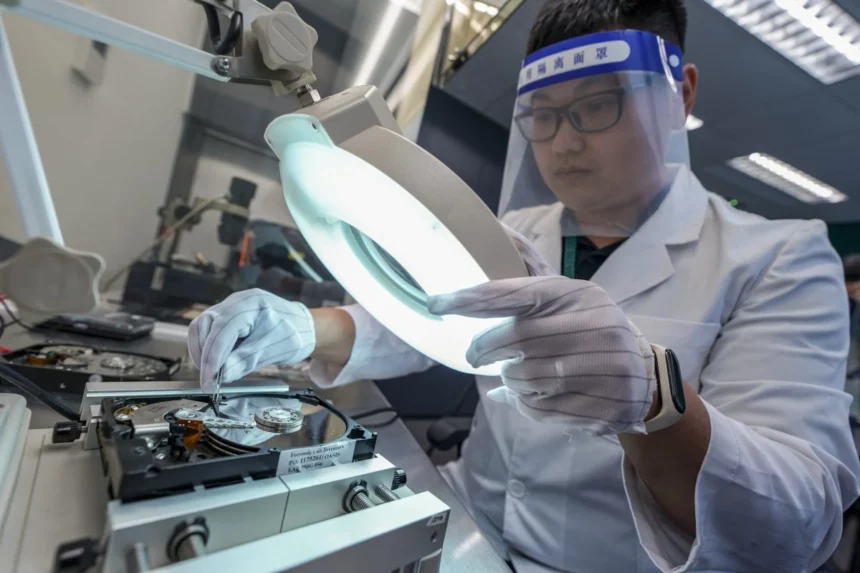The Customs and Excise Department of Hong Kong is set to revolutionize its approach to handling digital evidence by introducing a cutting-edge artificial intelligence (AI) system. This new technology promises to process up to an hour of surveillance footage or approximately 6,000 images within seconds, significantly enhancing the department’s ability to crack down on crimes involving digital evidence.
Senior Inspector Wong Wai-kei of the department’s computer forensic laboratory highlighted the efficiency gains expected from the new AI search engine. “When we adopt the AI system, we can process a case in a matter of seconds after entering several relevant commands for a particular search,” he said. “In our past practice, if a closed-circuit television clip was one hour long, our colleagues would have to sit in front of a monitor for an hour just to watch it.”
Initial research on the AI system has shown an 80% accuracy rate, which could save officers significant time during investigations. While the exact timeline for incorporating this system into daily operations remains unclear, Chiu Kat Wu-lan, acting assistant staff officer in the department, emphasized that customs is “proactively exploring the use of new technologies” to boost their capabilities in handling digital evidence and combating tech crimes.
The department’s computer forensic laboratory, established in 2000, plays a crucial role in collecting, preserving, and analyzing digital evidence. The lab’s 15 officers are responsible for tasks including cracking hidden files, providing real-time support at crime scenes, and ensuring the integrity of evidence presented in court. Additionally, dozens of team members from other divisions are available to provide technical support as needed.
Over the past five years, the laboratory has annually managed more than 100 cases involving electronic evidence, contributing to the roughly 19,000 cases handled by customs last year. Chiu noted that the rise in tech crimes, coupled with advancements in smartphone technology and the increase in infringement activities on auction websites, has made their forensic work more challenging.
“In the era of big data, the computer forensic laboratory also started to handle cases such as money laundering and smuggling, in addition to infringement and dangerous drugs,” Chiu said. “The amount and complexity of digital data processed by the computer forensic laboratory have skyrocketed, posing a considerable challenge to the laboratory’s work.”
Despite the introduction of this advanced technology, Chiu assured that the AI system would not replace officers’ responsibilities. Officers will still be required to verify forensic results generated by the system, ensuring the accuracy and reliability of the evidence.
The laboratory’s main functions include collecting and analyzing seized electronic evidence after obtaining a court warrant, offering immediate technical support to frontline personnel at crime scenes, compiling results into computer forensic reports, and, if necessary, providing testimony in court to explain the verification process. The lab also provides internal training to frontline staff to enhance their skills in handling electronic evidence.
The development of the entire AI system is expected to cost approximately HK$600,000. In a related move, Hong Kong police have applied to the Legislative Council for HK$500 million to establish a centralized digital image platform and personnel information communal system. While the government has not specified whether these new systems will include AI image recognition, Secretary for Security Chris Tang Ping-keung confirmed that police surveillance cameras would adopt facial recognition technology to improve law enforcement.
Francis Fong Po-kiu, honorary president of the Hong Kong Information Technology Federation, commented on the potential challenges of using AI, noting that while the technology can operate much faster, it cannot always guarantee the quality of outcomes. He stressed that customs must ensure they have the expertise to validate materials generated by AI to maintain the quality and reliability of their operations.
As Hong Kong Customs prepares to embrace this new technology, the AI system represents a significant step forward in the fight against tech crime, offering a faster and more efficient means of processing digital evidence.

